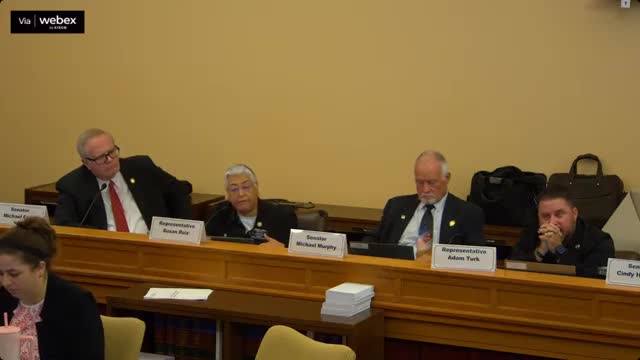Kansas Legislators Review 340B Drug Pricing Program Amid Concerns Over Pharmacy Restrictions
September 26, 2025 | Senate, Committees, Legislative, Kansas
This article was created by AI summarizing key points discussed. AI makes mistakes, so for full details and context, please refer to the video of the full meeting. Please report any errors so we can fix them. Report an error »

The Special Committee on Pharmaceutical Studies convened on September 26, 2025, to discuss critical issues surrounding the 340B drug pricing program and its implications for Kansas hospitals and pharmacies. The meeting highlighted concerns about the influence of out-of-state entities on local healthcare practices and the perceived bias against Kansas institutions.
Committee members expressed frustration over external organizations critiquing Kansas hospitals, emphasizing the quality of care provided within the state. Representative Oropeso echoed sentiments from previous discussions, defending local medical programs and questioning the relevance of external critiques to the 340B program.
Dr. Robert Popovian, a visiting health policy fellow at the Pioneer Institute, presented findings on the 340B program's impact in Kansas. He noted that the top five contract pharmacies in the state are owned by Pharmacy Benefit Managers (PBMs), raising concerns about the motivations behind their participation in the program. Popovian highlighted that these PBM-owned pharmacies benefit significantly from the program, receiving higher reimbursement rates compared to standard Medicaid or commercial plan drugs.
Additionally, Popovian pointed out a geographic mismatch, stating that many pharmacies are located in affluent neighborhoods rather than underserved areas, which contradicts the program's intent to aid low-income populations. He also revealed that a significant portion of contract pharmacies associated with Kansas hospitals are located out of state, further complicating the local healthcare landscape.
The committee's discussions underscored the need for transparency and accountability in the 340B program, as well as a commitment to ensuring that Kansas hospitals can continue to provide essential services to their communities. The meeting concluded with a call for further examination of the program's effectiveness and its alignment with the needs of Kansas residents.
Committee members expressed frustration over external organizations critiquing Kansas hospitals, emphasizing the quality of care provided within the state. Representative Oropeso echoed sentiments from previous discussions, defending local medical programs and questioning the relevance of external critiques to the 340B program.
Dr. Robert Popovian, a visiting health policy fellow at the Pioneer Institute, presented findings on the 340B program's impact in Kansas. He noted that the top five contract pharmacies in the state are owned by Pharmacy Benefit Managers (PBMs), raising concerns about the motivations behind their participation in the program. Popovian highlighted that these PBM-owned pharmacies benefit significantly from the program, receiving higher reimbursement rates compared to standard Medicaid or commercial plan drugs.
Additionally, Popovian pointed out a geographic mismatch, stating that many pharmacies are located in affluent neighborhoods rather than underserved areas, which contradicts the program's intent to aid low-income populations. He also revealed that a significant portion of contract pharmacies associated with Kansas hospitals are located out of state, further complicating the local healthcare landscape.
The committee's discussions underscored the need for transparency and accountability in the 340B program, as well as a commitment to ensuring that Kansas hospitals can continue to provide essential services to their communities. The meeting concluded with a call for further examination of the program's effectiveness and its alignment with the needs of Kansas residents.
View full meeting
This article is based on a recent meeting—watch the full video and explore the complete transcript for deeper insights into the discussion.
View full meeting
